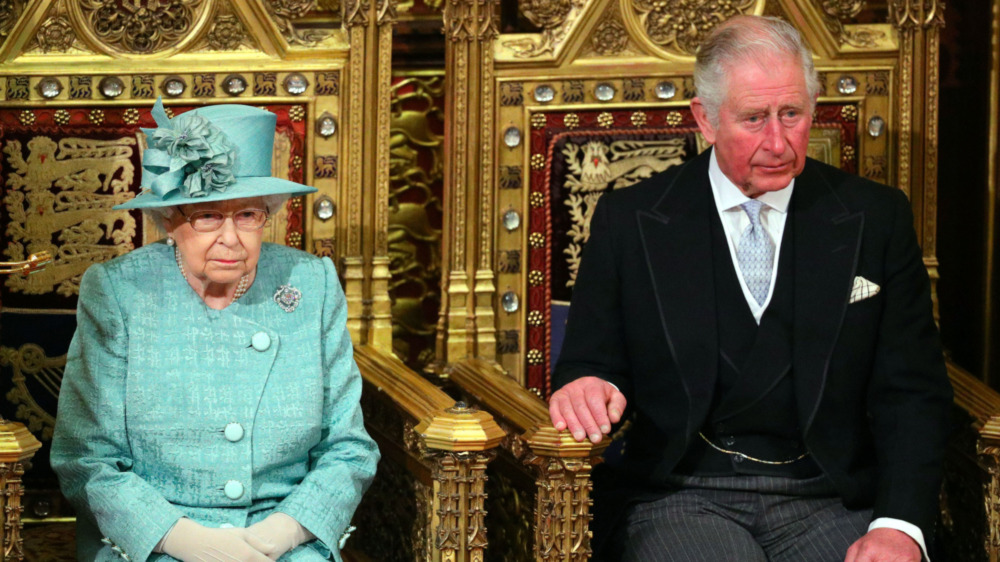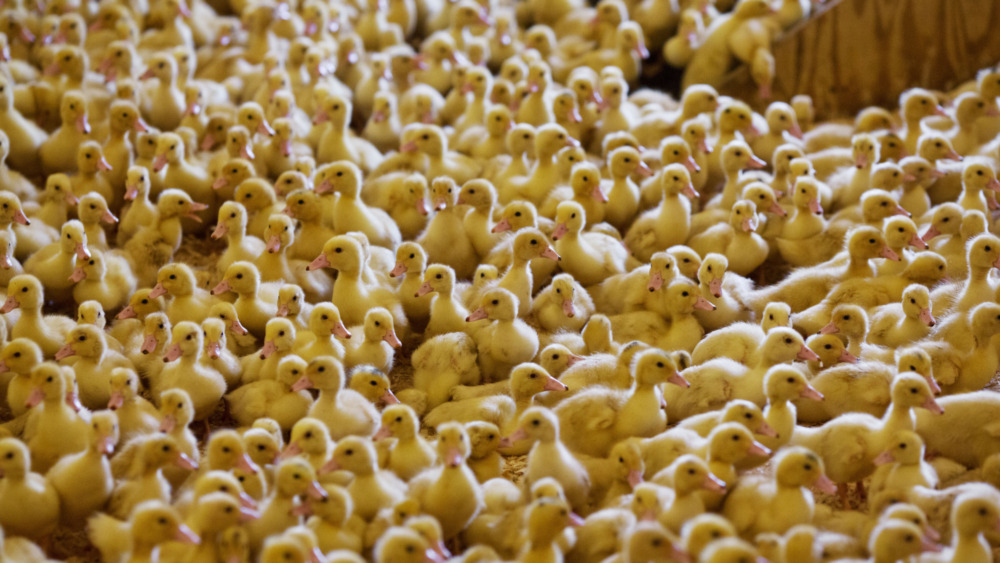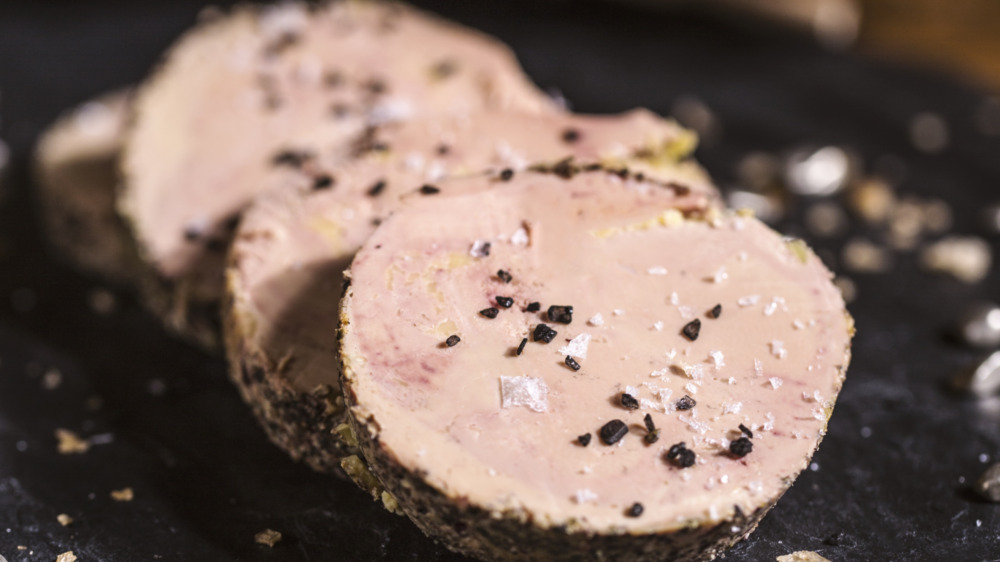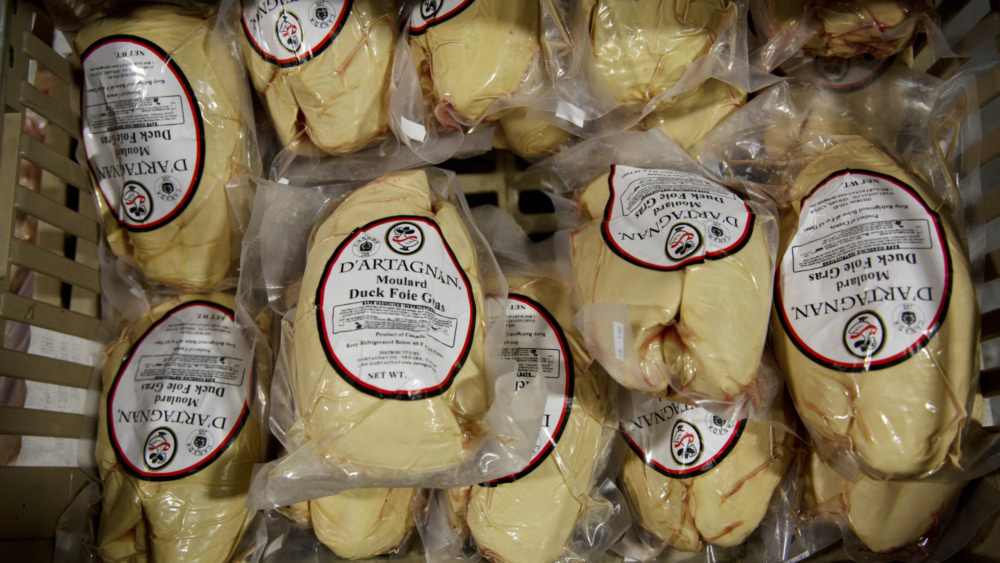The Fancy Dish That Is Banned From The Royals' Menus
It's no secret that the royal family is very particular about what and how they eat. There are tons of food rules that the British monarchy has to follow, from pointing the handles of their forks and knives to the bottom right of their plate when they're finished to never eating rare meat or shellfish when they're traveling (via Travel and Leisure). Then there are all of the royals' food preferences, like how the Queen prefers her sandwiches with the crusts cut off, per Reader's Digest, and Prince Charles has a very specific way he takes his tea, according to Express.
There are also some foods that are completely off-limits in the royal kitchen. One of those forbidden foods? Foie gras. Despite the fact that the fancy goose liver dish is one of the most popular delicacies in France, the royal family refuses to eat it or even purchase it (via Insider). Here's why you'll never see foie gras on the menu at Buckingham Palace.
Foie gras has been blamed for animal cruelty
While many people may love foie gras for its rich flavor and buttery soft texture, there's a lot of controversy and scandal surrounding the elegant dish. It's all about the method used to make the popular pâté. According to the World Animal Foundation, foie gras often involves extreme animal cruelty via a process known as gavage (via Serious Eats). Essentially the duck and geese are force-fed corn through a feeding tube that's shoved down their throats. This causes their liver to swell up to six to ten times the size of the average bird's liver which is not only very painful but also kills the bird after a few days of suffering.
The birds are kept in horrific conditions, according to PETA, which describes how thousands of ducks are crowded into tiny pens, where they suffer greatly between force-feedings. This force-feeding can be so damaging that, per PETA, that there have been reports of lethargic birds, rampant infections, and heat stress among the ducks.
Prince Charles stopped supporting a cheese shop because it sells foie gras
This cruelty spurred Prince Charles to ban foie gras from the royal menu back in 2008, as reported by Marie Claire UK. Not only that, but he also considered withdrawing the royal warrant from his favorite cheese shop (The House of Cheese in Tetbury) solely because they sell foie gras. "The Prince of Wales has a policy that his chefs should not buy foie gras," Andrew Farquharson, deputy master of Prince Charles' household, told the Daily Mail. He added, "His Royal Highness was not aware that the House of Cheese sells foie gras and this will be addressed when their warrant is reviewed."
While animal rights activists were happy with Prince Charles' ban, they said it was a long time coming. "We are very pleased, but foie gras should have been banned a long time ago," Viva! spokesman Justin Kerswell said (via Cheat Sheet). "Foie gras is seen as very posh and the heir to the throne is probably the poshest person in Britain, so for him to ban it is very good news."
Despite his threats, Prince Charles never officially withdrew the warrant. According to the Daily Mail, while foie gras is sold in smaller specialty shops like The House of Cheese, it isn't sold at any major retailers in the U.K., with the exception of Selfridges and Harrods.
Foie gras is illegal to produce in the United Kingdom
While you can buy foie gras at stores in the U.K. — like at Prince Charles' formerly beloved The House of Cheese — it's illegal for companies to produce the French delicacy. Production of foie gras has been banned in Britain since 2006, when a new animal welfare law was put in place. "The government has made clear that the production of foie gras from ducks or geese using force-feeding raises serious welfare concerns, and the practice is rightly banned in the U.K.," a spokesperson for the Department for Environment, Food and Rural Affairs told Fine Dining Lovers. "The government is considering the further steps it could take in relation to foie gras."
Much to Prince Charles' dismay, however, the production ban hasn't stopped Brits from digging into the fancy food. According to The Times, between 180 and 200 tons of foie gras are imported into the U.K. every year, many of it coming from France. So while it's off the royal menu, it's unlikely that foie gras will be going away completely any time soon.



